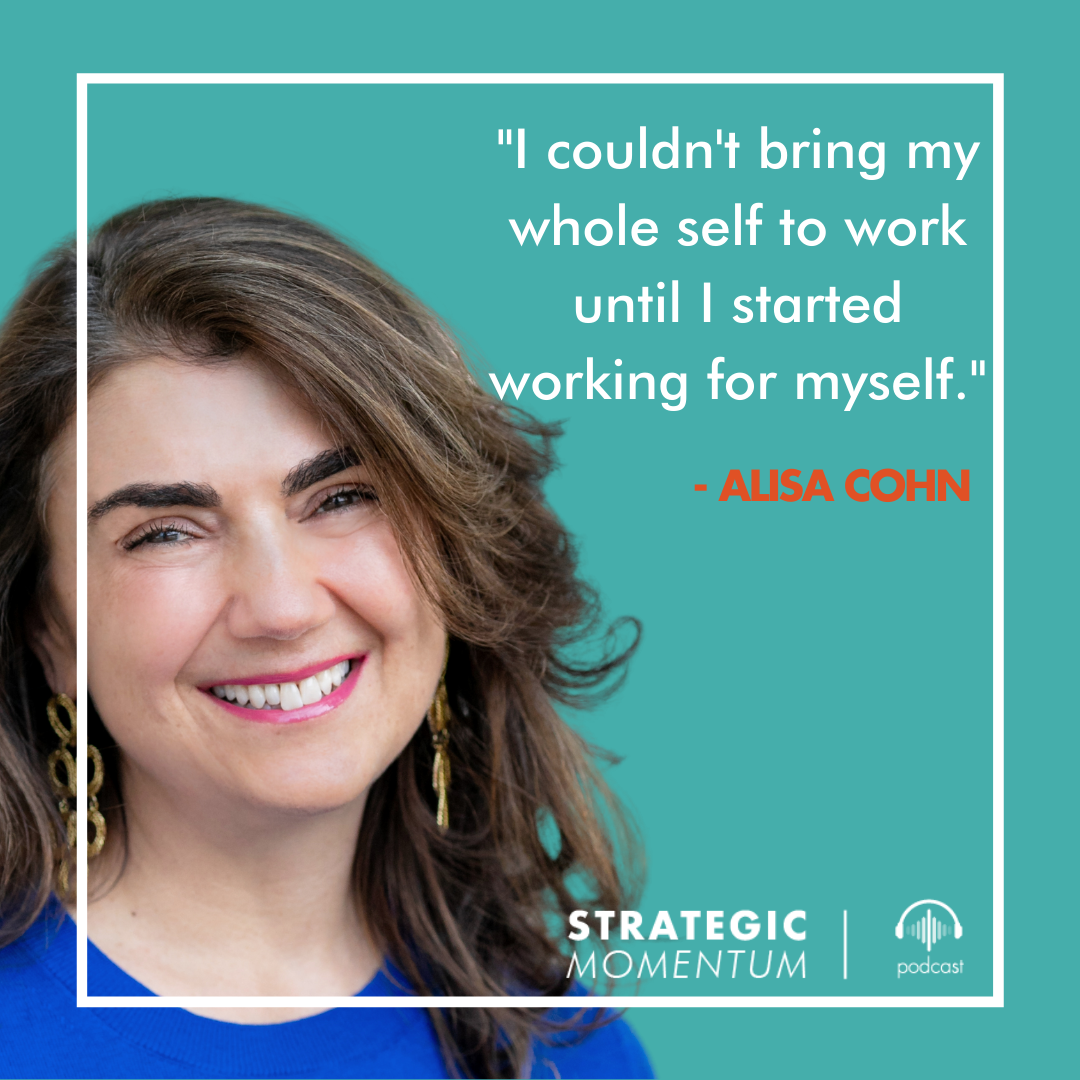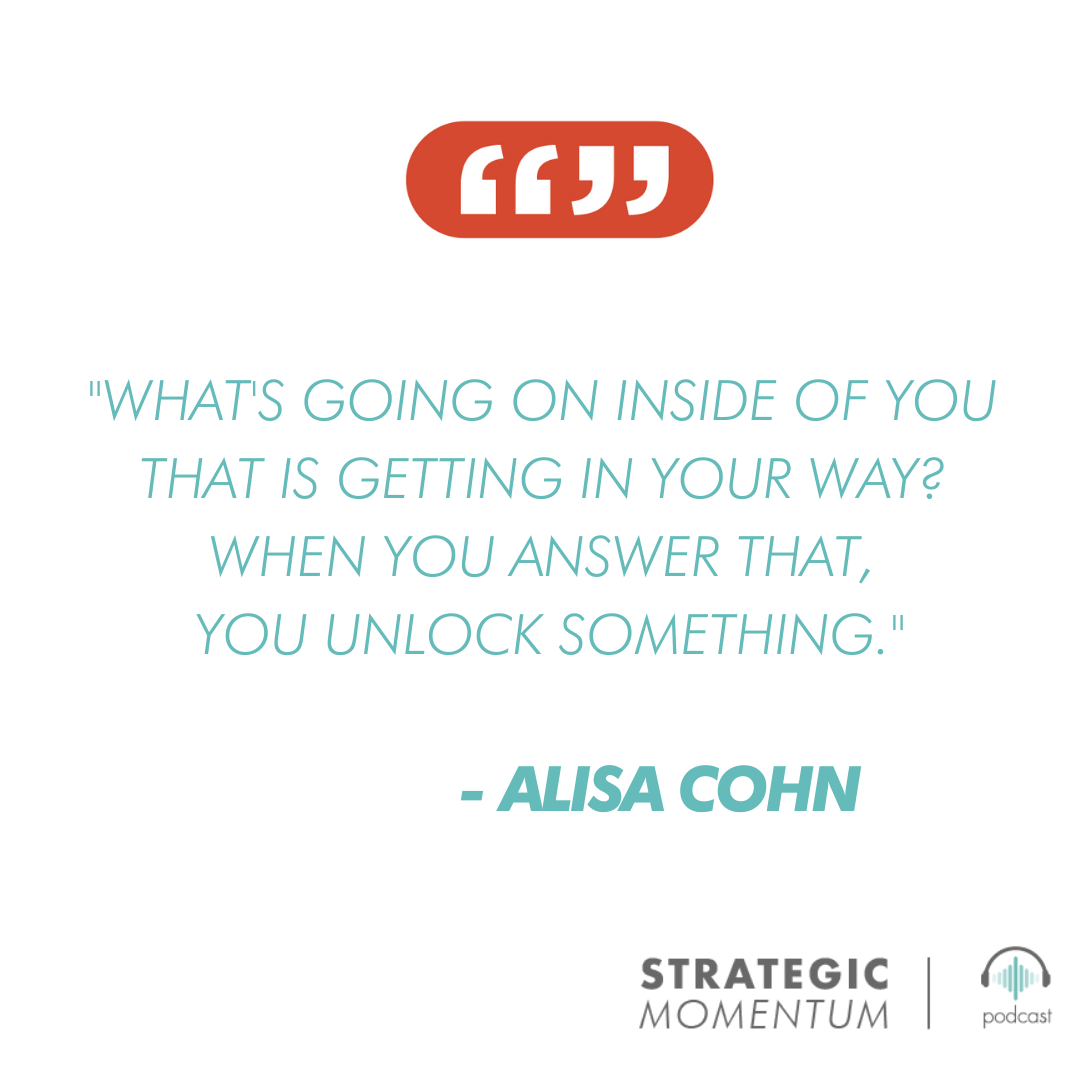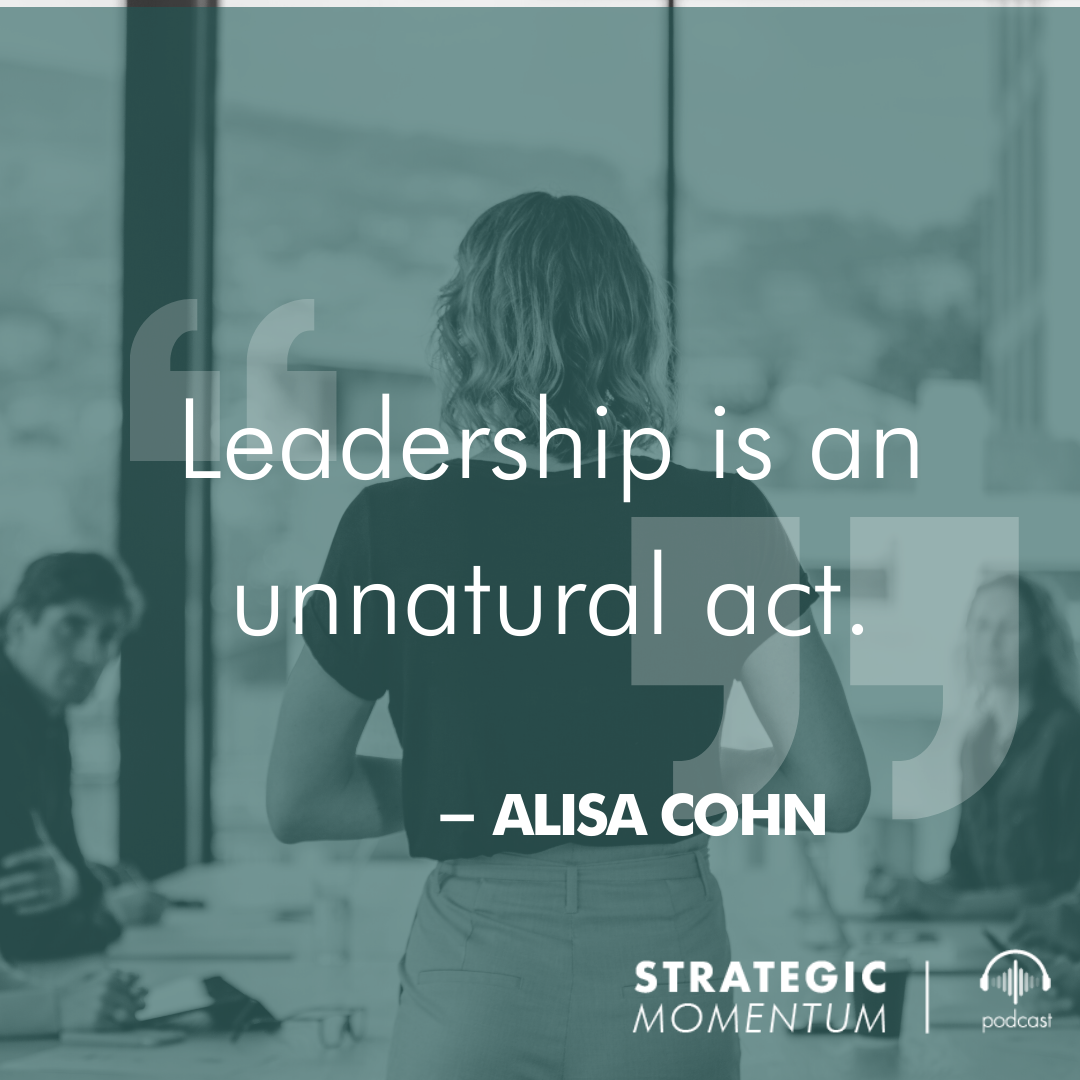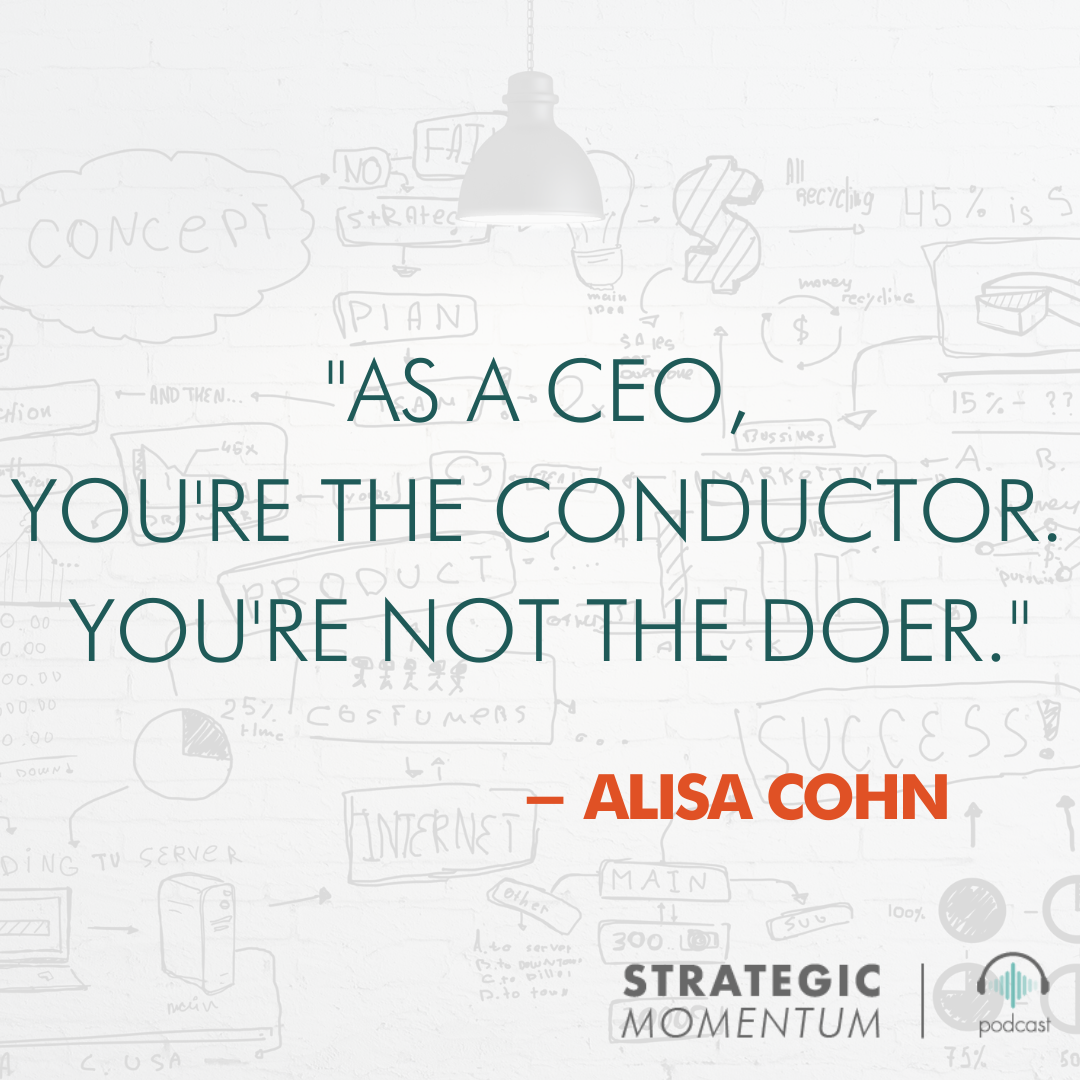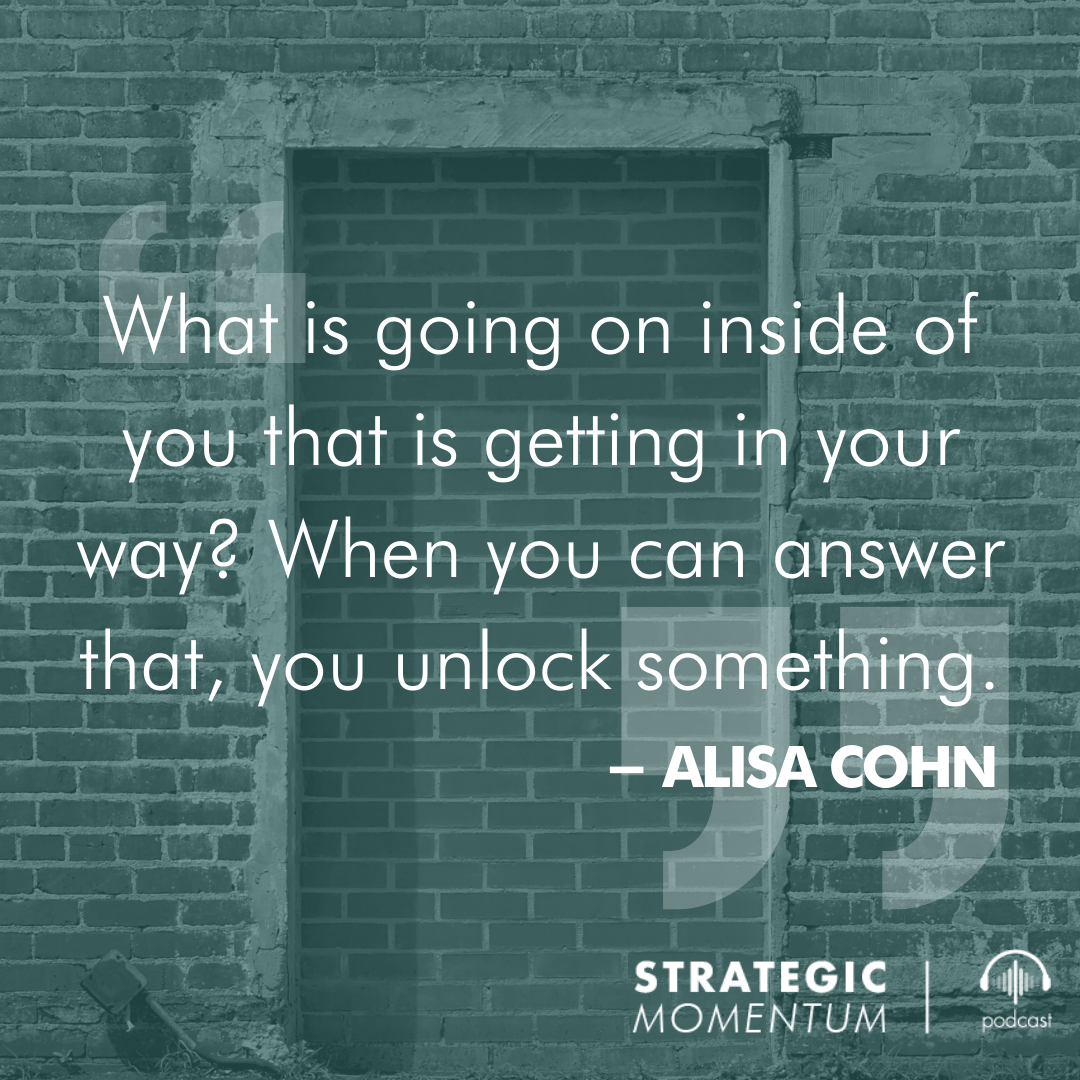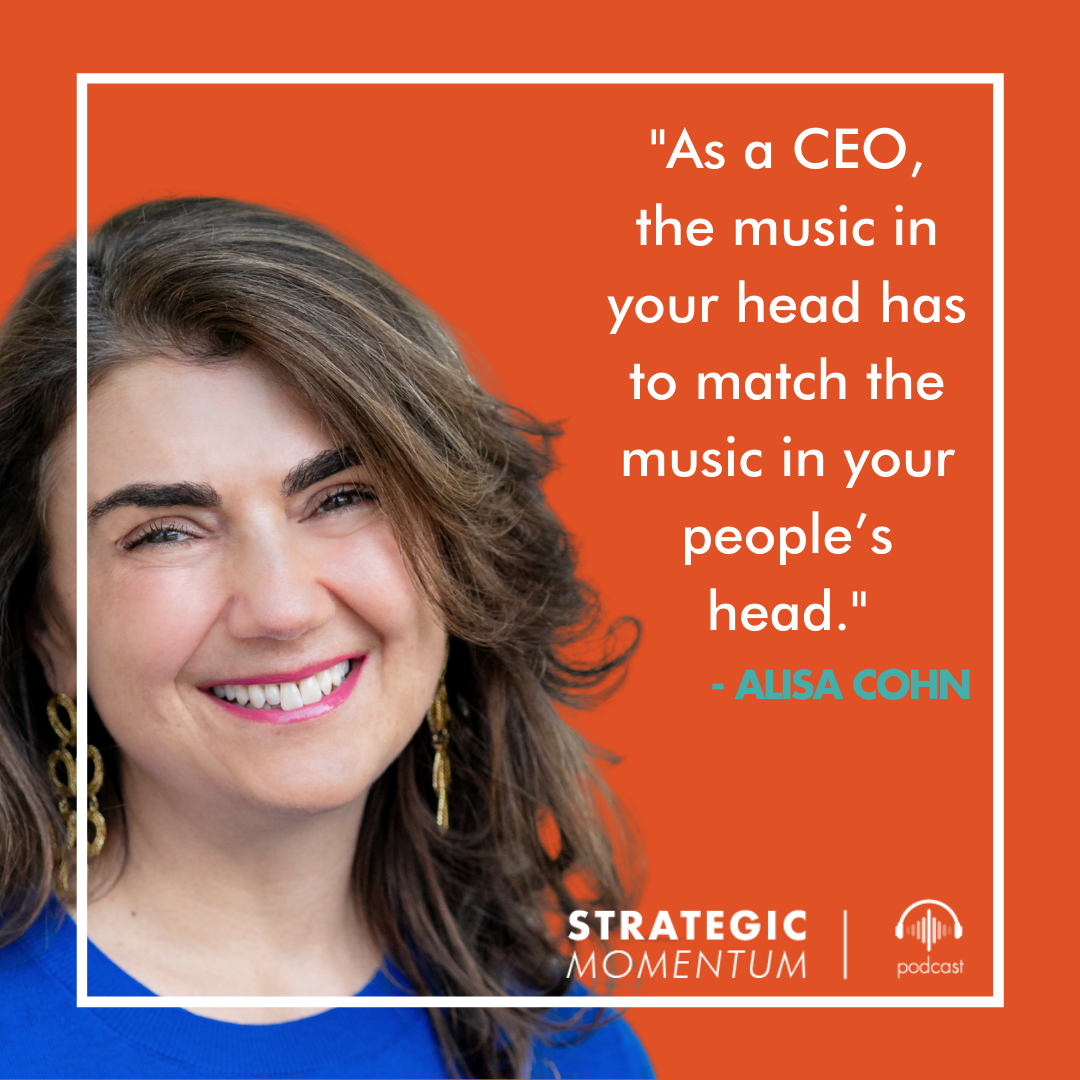Ep. 100 - Leveling Up Your Leadership From Founder to CEO - with Alisa Cohn
Find Us Wherever You Listen To Podcasts
Alisa Cohn is an executive coach who’s been working with startup founders to grow into world-class CEOs for nearly 20 years. She’s been called the #1 Startup Coach in the world and she’s the author of the new book “From Start-Up to Grown-Up.”
Her breadth and depth of experiences working with companies like Esty, Foursquare, Invision and The Wirecutter — coupled with own personal journey — has given her valuable knowledge, insights, and perspectives on the struggles founders often face when working to lead, grow, and manage their business.
A Journey of Discovery and Continuously Doing the Inner Work to Find Fit
Alisa’s career journey has taken her in quite a few different directions before she found the right fit: she started in the nonprofit world, tried working for the provost at a university, attended business school, went into strategy consulting, dabbled in the startup world, and was even on the partner track at one point — but none of it was fulfilling.
Eventually, she realized that her skill for building relationships wasn’t being fully accessed in any of these roles, and that’s how she thought she could make a difference in the world. Then she met a coach and that inspired her to pursue the career that she’s had for over 20 years.
“I felt like I couldn't bring my whole self to work until I started working for myself,” Alisa says. “And then I realized that my boss, sometimes, is a big pain, but most often, she lets me do what I want.”
And while her prior roles didn’t allow her to bring her full skillset, she was gaining valuable data about herself every step of the way. Each new experience offered Alisa hints on what she liked, what she didn’t, and what she was great at.
In that journey of self-discovery, self-reflection, and experimentation, she built an incredibly successful career. And it was the very act of intentionally doing that work on herself — she’ll tell you that the work is in you — that prepared Alisa to guide others to be world-class leaders and unearthed the passion that drives everything she does: the desire to light 10,000 candles, to be a positive force that touches 10,000 lives.
Using Her Career Mashup to Create Momentum & Impact Others
Alisa is a good coach because she’s walked the path herself. She doesn’t just say it, she’s done it and goes through the struggle, the challenges, and the imposter syndrome that all of us experience.
Being intentional about the way she walked the path, by focusing on personal development, she was constantly building that breadth and depth of skills and knowledge. She inherently understands that founders get locked up because they’re self-conscious, or nobody believes in them so they lose conviction.
And Alisa still does this work. For example, would you have guessed that Alisa is an amateur rapper?
It all started with a love of Hamilton. She decided to attend a workshop with Freestyle Love Supreme, and it ended up being an improv hip-hop class... and she was not a natural. But she wanted to be comfortable not being good at something — it was about putting herself in a situation where she was learning so that she could be more free, more creative, and less conscious of what people thought about her.
So try to be self-reflective and get input from others — Alisa might not have stuck with the workshop if it weren’t for her instructor, BS — and understand that this is a long game. You need to practice discipline and persistence.
From Start-Up to Grown-Up
“From Start-Up to Grown-Up” offers a roadmap to support startup founders in their leadership journey from founder to CEO — that shift from someone who's focused on building a product to someone who's focused on building a business.
The book offers insights into managing yourself and managing the business and managing other people as well as managing your board.
The book covers important topics such as learning how you learn, managing your own psychology and working through the ups and downs, but also helps you the founder understand what environment you are trying to set up. How do you need to build culture? How do you hire? How do you fire? And then what do you need to manage to be a successful business? This is really all about your relationships with others.
To help you along the way, the book includes scripts for delicate conversations because there are going to be a lot of difficult conversations along the way.
Managing Yourself Starts with Building the Plan
Alisa says “you can't follow the roadmap until you have the roadmap.”
So, you need to create and operationalize your own personal roadmap first. That means figuring out your answer to these questions: Where am I? Where am I going? How am I going to get there?
There is a goal, a destination you want to get to — that part is obvious — but in mapping out the how, it’s important to consider the context of managing yourself, managing others around you, and managing your business.
Bringing this roadmap to life involves building influence, having the right people around you, being self-reflective, and being persistent.
Challenges in Creating Traction & Growth: Internal Struggles
One of the most universal problems for founders and CEOs is simply having too much to do — and I think a lot of us who are not founders or CEOs can relate to that too. We’re all trapped in the curse of the busy, as Alisa calls it.
And when you believe that you have too much to do, every day begins from the starting point of not having enough time. For founders, the problem is often that they’re stuck on futurist thinking; they’re spending so much time thinking about where they want to be and the big ideas that they don’t spend enough time operationalizing a business that will actually get them there.
It may feel like there’s not enough time to step back and reflect on what your organization needs, what you need to manage, but you have to make that time — and you’ll probably need someone to teach you how because most founders are naturally big idea thinkers, not operational thinkers.
What it Takes to get to Leader-Company Fit
Your goal as a CEO or founder should be Leader-Company Fit. This starts with getting clarity on what you really want to do.
You have to ask yourself a hard question: do you truly want to be the CEO? Would your passion, interests, or skills actually make you happier as a product leader or sales leader?
If you want to be the leader and you're willing to develop the skills necessary to do that, then you've got to carve out time in your calendar for strategic thinking, reflection, and skill building. Time management is key as “it's not going to just magically appear on your calendar.” This is necessary to make progress. It’s about creating boundaries and understanding the tradeoffs because it’s easy to just keep doing and never actually get anywhere.
That time that you set aside may involve a wide range of activities: learning how to hire (or another necessary skill), getting to know people, or having those needed yet difficult conversations with your team.
Managing Others & Effective Communication to Create that Environment for Growth
When it comes to managing others, the challenge for many leaders or founders is that they don’t like to delegate; they like to be in control. However, in order to breakthrough, you need to learn to delegate the work — not the leadership.
And if you don’t delegate, you're also robbing your team of the opportunity to learn.
“As a CEO, you’re the conductor — not the doer. You're the one that's got to create fertile ground for great work to be done, not to be doing the great work.”
That means learning how to let go to create that fertile environment, letting go so that people can move forward with the work even if it’s not perfect.
Founders and CEOs also often struggle with the communication part of delegation, they don’t do a great job of explaining to others the desired outcomes. Sometimes what you want is so clear and obvious in your own head that you forget other people can’t read your mind. This results in a lack of alignment on expectations and deliverables because there isn’t the understanding of the context and purpose.
What Alisa tells the CEOs she works with is “that music in your head has to match the music in their head.” When you can figure out how to do that, you can get your whole team harmonizing to the same sheet of music.
That means learning how to best communicate what you want your people to do — it’s about achieving that shared agreement on what done looks like and why we are doing this work. That context is so important to get to the right destination, but it’s rarely shared. The music in your head has to match the music in their head.
Repetition is key because people in your company can get distracted. Your job as a CEO is to make sure that communication is happening in all the right places: you've got to communicate it yourself in all hands, in small groups, and one-on-ones, but you also have to make sure that your executives are being the ambassadors for that message down to their teams.
Finally, understand that leadership is an unnatural act. It’s unnatural to repeat yourself, but you have to learn. It is unnatural to cadence and communicate things down through an organization and fine tune it as you go, but you have to learn. It’s unnatural to sit alone and perform a self-assessment, but it has to be done.
“These things are unnatural. You have to learn them. That's the point about my book. You’ve got to learn these skills as a CEO and that's the work. The work is in you,” Alisa says.
Career Advice
You don’t ask, you don’t get
You've got to nourish your network. You will only be successful as other people around you will allow you to be.
Key Takeaways
Making the shift from founder to CEO requires, first, getting clarity on what one really wants to do.
You need to build that roadmap for yourself and carve out time in your calendar to do strategic thinking, reflection, and skill building in order to make progress.
That also requires setting up the ground rules/protocols on what you are going to do with that time and sticking to it.
This could be self-reflection, watching videos, online learning, getting to know your people, setting up time to have difficult conversations, etc.
As a CEO, you are the conductor, not a doer.
What’s your highest and best use? What's your natural swing?
You need to learn the art of delegating and the art of letting go so that others can do the work and you can move forward even if it isn’t perfect.
To be an effective leader, you need to not only get comfortable with delegating but also build critical soft skills like communication, time management, and self-awareness to help you and everyone in your organization move towards the business goals.
It’s critical to communicate and create alignment between what you need done and what that outcomes looks like as you delegate.
That means having a shared agreement on what done looks like and why we are doing. That context is critical.
Cadence and consistency of your communication is key as CEO.
As a CEO, your job is to repeat, repeat, repeat yourself until you're sick of hearing yourself. You have to match the music in their head with the music in your head until everyone is singing from the same sheet of music.
That communication has to happen in all settings so that message trickles down to all groups.
What is going on inside of you that is getting in your way? When you can answer that, you unlock something.
As an entrepreneur, mental fortitude is key. It’s not going to be easy, bad things are going to happen. You need to have extreme persistence.








